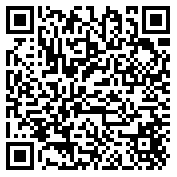The Theory of Active Learning
The Theory of Active LearningThirawit Praimahaniyom, (July, 2023)
This essay delves into the Theory of Active Learning, an instructional approach that prioritizes student engagement, collaboration, and critical thinking. Active learning has garnered significant attention in educational research and practice over the last two decades. This essay provides an overview of the theory's evolution, key principles, and its impact on student learning outcomes.
Introduction Active learning is an approach that places students at the center of the learning process, shifting them from passive recipients to active participants (Freeman et al., 2014, p. 3). According to Bonwell and Eison (1991, p. 2), active learning involves engaging students in activities that encourage analyzing, synthesizing, and evaluating course content. This essay aims to explore the development and significance of the Theory of Active Learning, as well as its application in modern educational settings. Evolution of the Theory The Theory of Active Learning has evolved over time, with influential researchers contributing to its development. Bonwell and Eison (1991, p. 5) argue that active learning approaches have been present in education for centuries but gained prominence in the 20th century due to the work of educational psychologists like John Dewey and Jean Piaget. In recent years, the theory has gained further traction through empirical studies highlighting its positive impact on student learning outcomes. For instance, Prince (2004, p. 23) conducted a meta-analysis of 225 studies and found that active learning approaches led to higher examination scores, increased retention of knowledge, and improved critical thinking skills. Key Principles of Active Learning Active learning is guided by key principles that shape instructional design and student engagement. Hake (1998, p. 104) proposed the concept of "interactive engagement," emphasizing the importance of active student participation and discourse during the learning process. This principle aligns with the constructivist theory of learning, suggesting that knowledge is constructed through active engagement with the learning materials (Jonassen, 2000, p. 17). Collaboration and cooperative learning are additional principles inherent in active learning. Johnson, Johnson, and Smith (2006, p. 42) argue that students learn best when they work together in groups, exchanging ideas and challenging each other's perspectives. This social aspect of learning promotes critical thinking and enhances students' ability to apply knowledge in real-world contexts. Impact on Student Learning Outcomes Numerous studies have demonstrated the positive impact of active learning on student learning outcomes. Freeman et al. (2014, p. 5) conducted a comprehensive meta-analysis of 225 studies spanning disciplines such as STEM, social sciences, and humanities. Their findings indicated that active learning approaches resulted in higher examination scores and reduced failure rates compared to traditional lecture-based methods. Moreover, active learning has been shown to improve student engagement and motivation. Prince (2004, p. 27) suggests that active learning approaches create a more interactive and dynamic learning environment, fostering a sense of ownership and accountability among students. This, in turn, contributes to increased student satisfaction and retention rates. Conclusion The Theory of Active Learning has emerged as a powerful pedagogical approach that promotes student engagement, collaboration, and critical thinking. The principles of active learning, including interactive engagement and collaborative learning, have been shown to enhance student learning outcomes across disciplines. As the educational landscape continues to evolve, active learning will likely play an increasingly vital role in fostering meaningful and effective learning experiences. References: Bonwell, C. C., & Eison, J. A. (1991). Active learning: Creating excitement in the classroom. ASHE-ERIC Higher Education Report No. 1. Washington, DC: The George Washington University, School of Education and Human Development. Freeman, S., Eddy, S. L., McDonough, M., Smith, M. K., Okoroafor, N., Jordt, H., & Wenderoth, M. P. (2014). Active learning increases student performance in science, engineering, and mathematics. Proceedings of the National Academy of Sciences, 111(23), 8410-8415. Hake, R. (1998). Interactive-engagement versus traditional methods: A six-thousand-student survey of mechanics test data for introductory physics courses. American Journal of Physics, 66(1), 64-74. Johnson, D. W., Johnson, R. T., & Smith, K. A. (2006). Active learning: Cooperation in the college classroom. Edina, MN: Interaction Book Company. Jonassen, D. H. (2000). Computers as mindtools for schools: Engaging critical thinking. Upper Saddle River, NJ: Merrill Prentice Hall. Prince, M. (2004). Does active learning work? A review of the research. Journal of Engineering Education, 93(3), 223-231.
|
โปรแกรมวิชาภาษาอังกฤษ คณะครุศาสตร์ มหาวิทยาลัยราชภัฏกำแพงเพชร. (2566). The Theory of Active Learning. สืบค้น 1 กุมภาพันธ์ 2569, จาก https://edu.kpru.ac.th/english/?lang=TH&page_id=384


